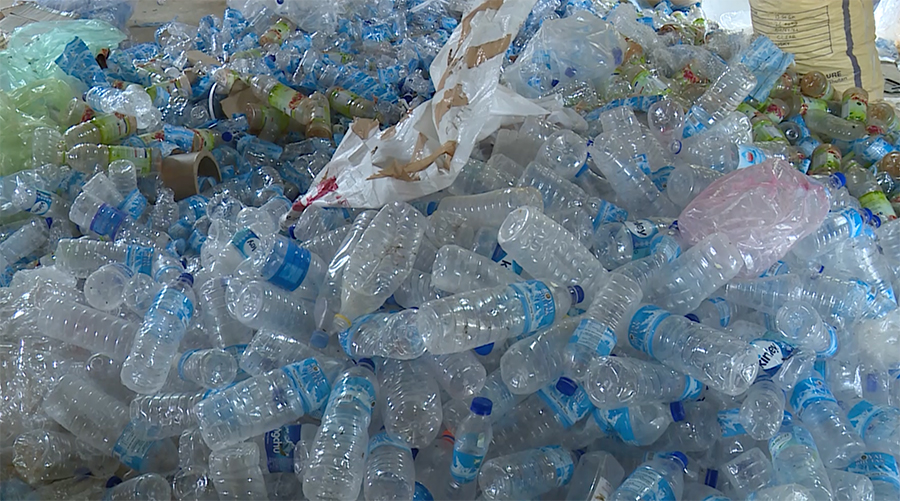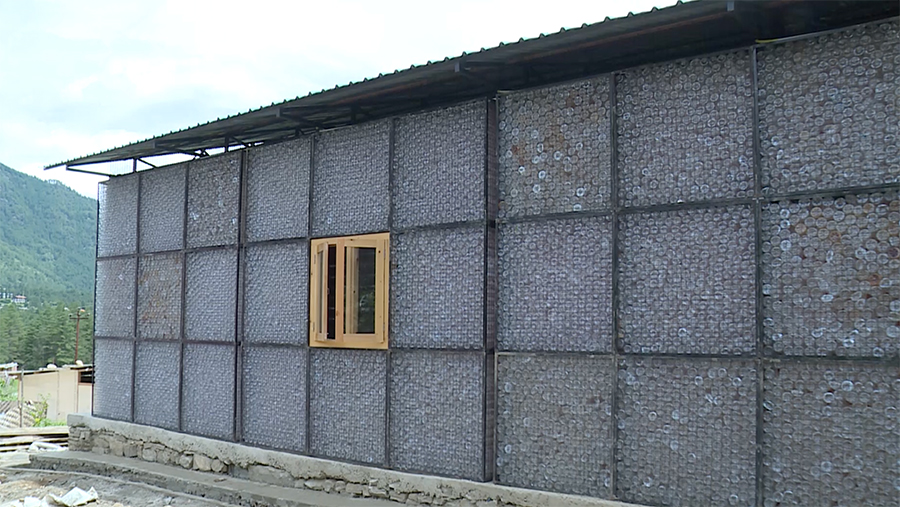
A saying “One man’s trash is another man’s treasure” is coming to life as creativity and technology come together to tackle waste and promote sustainability. Clean Bhutan, a civil society organisation, has an innovative plan to transform plastic water bottles by turning discarded PET bottles into cosy pillows and blankets, blending sustainability with comfort. The initiative is already in progress.
According to the National Waste Inventory Survey 2019, the country generates over 172 metric tons of solid waste daily. Plastic and paper wastes constitute 33 per cent of the total waste, indicating a significant potential for recycling or reuse.
This is where Clean Bhutan envisions a way to utilise the abundance of discarded PET bottles. The process begins by collecting used PET bottles, which would otherwise end up in landfills or rivers. After cleaning, the bottles are then shredded into small pieces.
“We shred these bottles and also find a solution for the caps. We’re seeking equipment that can turn caps into fuel for furnaces. Additionally, we’re selling some of this shredded material to companies like green roads, who use it for eco-friendly plastic roads,” said Nedup Tshering, the executive director of Clean Bhutan.
Currently, the recycling plant’s capacity is limited to shredding bottles. Clean Bhutan is looking for a donor to buy a fibre wool-making machine. This machine would enable them to melt down shredded material and convert it into fibre that can be spun into yarn or create polyester fabric.
“While searching for a market in India, we discovered an interest in Siliguri. However, due to governmental policies, waste can’t be exported from Bhutan or imported to India. Thus, we decided to add value to the PET bottles. Our options are creating yarn or fibre wool. Meanwhile, we’ll stock up on flakes until we secure a donor for the necessary equipment. We plan to collaborate with local tailors to craft pillows, cushions, or quilts from the fibre wool, especially for hospitals and schools.”
 The recycling plant is housed in a structure constructed using 25,000 PET bottles. The bottles serve as insulation, providing comfort to workers and noise reduction.
The recycling plant is housed in a structure constructed using 25,000 PET bottles. The bottles serve as insulation, providing comfort to workers and noise reduction.
The Coca-Cola Foundation TCCF funded and supported the project.
Samten Dolkar
Edited by Sonam Pem








